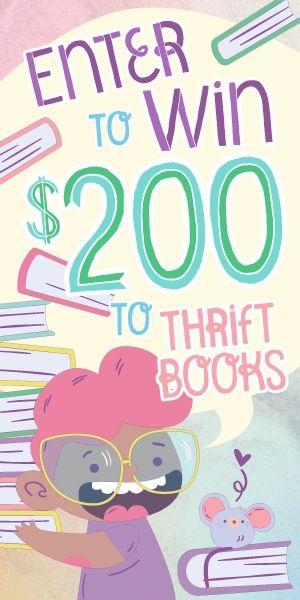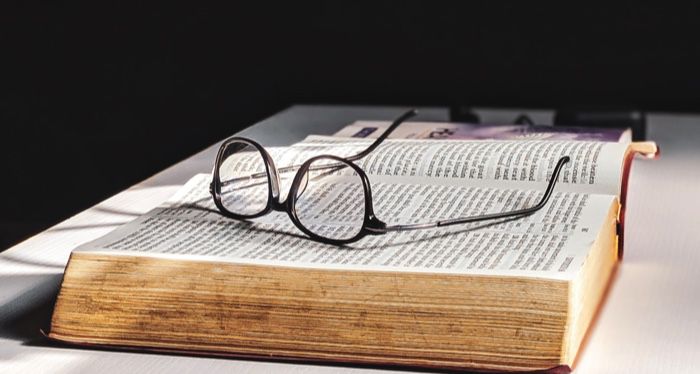
A Guide to Bookish MacArthur Fellows
Since 1981, the John D. and Catherine T. MacArthur Foundation has awarded an annual fellowship in the form of a cash prize to between 20 and 30 people. MacArthur fellows can work in any field and must be United States citizens. There is no application process, although recommendations can be made to the foundation anonymously and, after being reviewed by a committee that is also anonymous, final recommendations are presented to the board. Fellows are notified by telephone call, which is truly the only good reason I can think of to answer the phone. The prize money, also known as a “genius grant,” is currently $800,000 (a recent increase from $625,000; previously $500,000) and is distributed quarterly over five years; there are absolutely no strings attached.
The MacArthur Foundation is based in Chicago and has an endowment of $7 billion, making it the 12th largest private foundation in the U.S. The foundation gives around $260 million yearly to various causes, including creative endeavors such as the fellowship, global issues including climate change and nuclear threats, and more local issues such as reducing prison populations.
John D. MacArthur was a wealthy businessman who set up the foundation at least in part as a way to avoid paying taxes. He left 92% of his $1 billion fortune to the foundation upon his death in 1978, but declined to dictate how they should use it. His will did stipulate that his eldest son, J. Roderick MacArthur (from a previous marriage) be on the board of directors; Roderick pushed the board in a philanthropic direction, suing twice for mismanagement. In 1981, the fellowship program was established.
As might be expected from a program that rewards “extraordinary originality and dedication in their creative pursuits and a marked capacity for self-direction,” many writers have been MacArthur fellows. The 2022 fellows are no exception, with four phenomenal writers included in the group.
P. Gabrielle Foreman
A literary historian and Professor of American Literature and African American Studies and History at Penn State, Foreman’s work focuses on recovering early traditions of African American activism. She wrote Activist Sentiments: Reading Black Women in the Nineteenth Century.
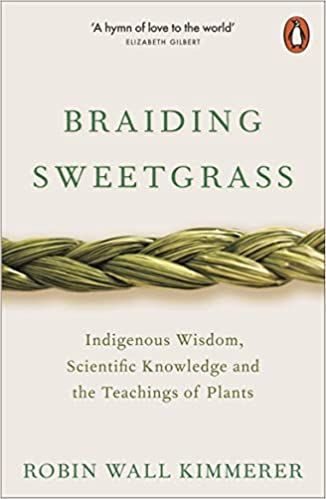
Robin Wall Kimmerer
Book Riot favorite Kimmerer is an enrolled member of the Citizen Potawatomi Nation, a SUNY Distinguished Teaching Professor of Environmental Biology, and the founder and director of the Center for Native Peoples and the Environment. She’s also the author of Braiding Sweetgrass.
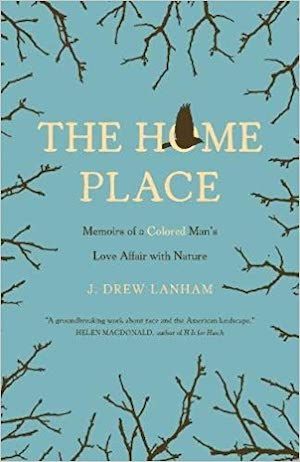
Joseph Drew Lanham
Ornithologist and naturalist Lanham is in the Forestry and Environmental Conservation Department at Clemson University in South Carolina, his work focuses primarily on “combining conservation science with personal, historical, and cultural narratives of nature.” He wrote The Home Place.
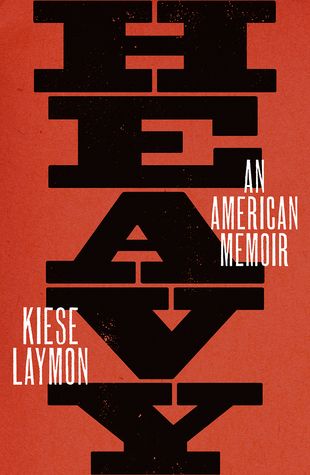
Kiese Laymon
Laymon is a Black, Southern writer and professor of English and Creative Writing at Rice University in Mississippi.
His memoir Heavy speaks to his experiences of sexual violence, eating disorders, familial relationships, and more. He also wrote How to Slowly Kill Yourself and Others in America and the novel Long Division.
The fellows awarded in 2021 are every bit as exciting, with even more writers and other literary people included.
Daniel Alarcón
Alarcón is a Peruvian-American journalist and novelist, the host of NPR’s Radio Ambulante, and an assistant professor of broadcast journalism at the Columbia University Journalism School. His New Yorker story “City of Clowns” was made into a short film in Peru.
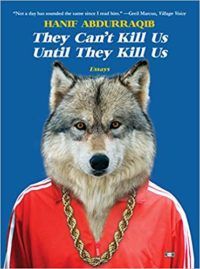
Hanif Abdurraquib
Poet and essayist Abdurraqib has written about everything from Columbus, Ohio, to A Tribe Called Quest. A five-year anniversary edition of his essay collection They Can’t Kill Us Until They Kill Us was released in November 2022 with additional material and an audiobook version recorded by Abdurraqib.
Reginald Dwayne Betts
Betts spent nine years in prison for a carjacking he participated in as a teenager; while incarcerated, he read The Black Poets by Dudley Randall and began writing his own poetry. After his release, he earned an MFA in creative writing from Warren Wilson Collage and a JD from Yale. He was on President Obama’s Coordinating Council of the Office of Juvenile Justice and Delinquency Prevention and founded Freedom Reads, bringing books to prison populations. He has published several collections of poetry and a memoir, A Question of Freedom. He relayed the story of getting the call from the MacArthur foundation in The Washington Post.
Don Mee Choi
Choi is a Korean American poet and translator of other Korean women’s poetry. She lives in Germany and her most recent book is DMZ Colony.
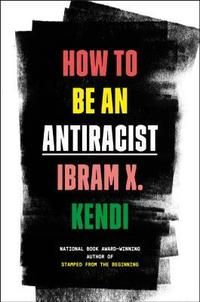
Ibram X. Kendi
A historian of race and discriminatory policy in America, Kendi is the director of the Center for Antiracist Research at Boston University. Previously, he was a professor of history and international relations at American University in Washington, D.C., an assistant professor in the University of Florida history department’s African American Studies program, a visiting scholar in the department of Africana Studies at Brown University, an assistant professor of Africana Studies at SUNY Albany, and an assistant professor of history in the department of Africana and Latino Studies at SUNY Oneonta. His books How to Be an Antiracist and Stamped From the Beginning have been adapted for all ages.
Keeanga-Yamahtta Taylor
Historian Taylor is is a professor of African American Studies at Northwestern University. She is the author of From #BlackLivesMatter to Black Liberation.
It would make for far too long an article to discuss every literary fellow from the previous 40 years of MacArthur grants, but I have compiled a list of every one I was able to identify. The full list is, of course, on the MacArthur Foundation website. I find it particularly interesting to watch the list of fellows transform from a mostly white, mostly male group to a vibrantly diverse group over the years.
In 1981, the inaugural group of fellows included poets A.R. Ammons and Joseph Brodsky, literary critics Henry Louis Gates Jr. and Robert Penn Warren, essayists Richard Critchfield and James A. McPherson, playwright Derek Walcott, and novelists Cormac McCarthy and Leslie Marmon Silko.
In 1982, the list included writers Ved Mehta and William Gaddis and linguist Michael Silverstein.
In 1983, screenwriter John Sayles joined novelist William Kennedy, poet Brad Leithauser, literary scholar and professor of linguistics A.K. Ramanujan, and book historian, designer, and printer Adrian Wilson.
In 1984, poets Robert Hass, who would go on to be the United States Poet Laureate from 1995 to 1997, and Galway Kinnell were joined by literary critic Bette Howland, novelist and screenwriter Ruth Prawer Jhabvala, linguistic anthropologist Shirley Brice Heath, and translator Charles Simic.
In 1985, poet John Ashbery and critic Harold Bloom were honored.
1986 fellows included poet and translator Daryl Hine, journalist Thomas Whiteside, and playwright and poet Jay Wright.
The 1987 group included poets Douglas Crase, Richard Kenney, Mark Strand, and May Swenson; literary critic Irving Howe; writer Walter Abish; journalist Tina Rosenberg; and translator and editor Huynh Sanh Thông.
1988 awarded writer Andrew Dubus, novelist Thomas Pynchon, and linguist Getatchew Haile.
In 1989, fellowships were awarded to poet Allen Grossman, journalist Keith Hefner, and writers Jay Cantor, Richard Powers, and Vivian Gussin Paley, who was also a kindergarten teacher.
1990’s list includes poet Jorie Graham, poet and literary critic John Hollander, critic Marc Shell, and writers Guy Davenport, Patricia Hampl, Gary Paul Nabhan, and Susan Sontag.
In 1991 the cohort included journalist Paul Berman, poets Alive Fulton and Eleanor Wilner, and writers Guillermo Gómez-Peña and Lewis Hyde.
1992 included poets Amy Clampitt and Irving Feldman, journalists Robert H. Hall and Michael Massing, and writers Norman Manea, Paule Marshall, Joanna Scott, and John T. Scott.
1993 fellows included poet and critic Stanley Crouch, poet and critic Thom Gunn, poet and critic Ann Lauterbach, poet and translator Jim Powell, journalist William Siemering, and writers Ernest Gaines and John Edgar Wideman.
1994’s fellows were writers Donella H. Meadows and Adrienne Rich.
1995 awarded journalists Sandy Close and Alma Guillermoprieto and writers Octavia E. Butler, Sandra Cisneros, and Virginia Hamilton.
The 1996 fellows included playwrights John Jesurun and Anna Deavere Smith, poet Thylias Moss, writer Rebecca Goldstein, and poet, translator, and literary critic Richard Howard.
In 1997, fellowships were awarded to playwrights Lee Breuer and Han Ong, literary scholar and poet Susan Stewart, and writers Luis Alfaro and David Foster Wallace.
1998 included poets Linda Bierds and Edward Hirsch, journalist Charles Lewis, playwright Mary A. Zimmerman, linguistic anthropologist Elinor R. Ochs, writer Charles R. Johnson, and poet, essayist, and novelist Ishmael Scott Reed.
1999 awarded journalist Mark Danner, poet Campbell McGrath, playwright Naomi Wallace, anthropological linguist Dennis A. Moore, classicist Leslie V. Kurke, and linguist Ofelia Zepeda.
In 2000 the fellows included poets Anne Carson and Lucia M. Perillo, graphic novelist Ben Katchor, and literary scholar Laura Otis.
In 2001 fellows included writer Andrea Barrett, classicist and papyrologist Dirk Obbink, playwright Suzan-Lori Parks, and biographer Jean Strouse.
2002 included journalist Karen Boo, linguist Daniel Jurafsky, biblical scholar Jack Miles, and writers Karen S. Hesse and Colson Whitehead.
2003 fellows included writer Angela Johnson and writer and translator Lydia Davis.
In 2004, fellowships were awarded to poet C.D. Wright and writers Edward P. Jones and Aleksandar Hemon.
The 2005 group included novelist Jonathan Lethem and rare book preservationist Terry Belanger.
2006 was a larger group, including naturalist author/illustrator David Carroll, journalist Adrian LeBlanc, playwright Sarah Ruhl, author and surgeon Atul Gawande, author-illustrator David Macaulay, and writer George Saunders.
2007 included playwright Lynn Nottage, translator and poet Peter Cole, and writer Stuart Dybek.
In 2008, the sole literary recipient of the award was Chimamanda Ngozi Adichie.
2009 included papermaker Timothy Barrett, poet Heather McHugh, investigative journalist Jerry Mitchell, and writers Deborah Eisenberg and Edwidge Danticat.
2010 fellows included Wampanoag language preservationist Jessie Little Doe Baird, type designer Matthew Carter, sign language linguist Carol Padden, and writers David Simon and Yiyun Li.
In 2011, fellowships were awarded to journalist Peter Hessler and poets Kay Ryan and A.E. Stallings.
2012 fellows included journalist David Finkel and writers Dinaw Mengestu and Junot Diaz.
In 2013, the fellows included playwright Tarell McCraney and writers Donald Antrim and Karen Russell.
The 2014 cohort included cartoonist and writer Alison Bechdel, poet Terrance Hayes, poet and translator Khaled Mattawa, and playwright Samuel D. Hunter.
2015 awards went to poet Ellen Bryant Voigt, playwright and author Lin-Manuel Miranda, writer Ben Lerner, and journalist and author Ta-Nehisi Coates.
In 2016, the fellows included linguist and cultural preserver Daryl Baldwin, playwright Branden Jacobs-Jenkins, poet Claudia Rankine, journalist Sarah Stillman, graphic novelist Gene Luen Yang, and writers Maggie Nelson and Lauren Redniss.
2017 awarded playwright Annie Baker, journalist Nikole Hannah-Jones, and writers Viet Thanh Nguyen and Jesmyn Ward.
In 2018, fellowships went to poet Natalie Diaz and writers John Keene and Kelly Link.
The 2019 fellows included cartoonist Lynda Barry, literary scholars Saidiya Hartman and Jeffrey Alan Miller, classicist and translator Emily Wilson, and writers Valeria Luiselli and Ocean Vuong.
The 2020 cohort was outstanding, including essayist and scholar Tressie McMillan Cottam, playwright Larissa FastHorse, cultural theorist and poet Fred Moten, and writers Cristina Rivera Garza, N.K. Jemisin, and Jacqueline Woodson.














